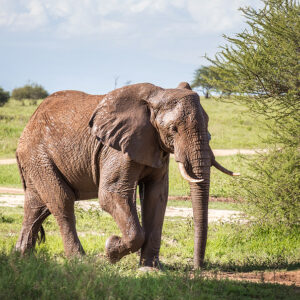In a move that has sparked widespread consternation among African range states and hunter conservationists, the U.S. Fish and Wildlife Service finalized a rule severely restricting legally harvested elephant imports. This decision represents a significant setback for responsible wildlife management and conservation efforts in southern Africa, where elephants are sustainably and legally hunted to the great benefit of those countries.
A misconception lies at the heart of this issue: regulated hunting threatens elephant populations. The truth could not be further from this oft-repeated yet unsubstantiated claim by animal rights groups motivated by emotions rather than facts.
The seven countries where elephants are hunted and exported, including the United States, are home to 81 percent of the global elephant population. Hunting does not threaten elephants; it sustains them.
These countries — Botswana, Mozambique, Namibia, South Africa, Tanzania, Zambia and Zimbabwe — have implemented successful conservation programs, supported in large part by revenue from regulated hunting. By restricting legally harvested elephant imports, the USFWS is undermining these conservation programs and jeopardizing the livelihoods of private landholders and rural communities that depend on hunting tourism. It is no surprise that these countries vigorously opposed the new rule.
Hunting revenues across the African range states contribute heavily to wildlife management. Licenses, fees and other revenue streams from regulated hunting generate irreplaceable funding for anti-poaching programs, habitat improvement, research, compensation for wildlife damages, and community livelihood improvements.
In 2021, for example, hunting in Namibia generated almost $2 million, partly used to employ 700 game guards on conservancies, support community projects like digging boreholes and human water sources, and build schools and clinics through revenue sharing with hunting outfitters.
In addition to the benefits elephant hunting generates, it is sustainable and well-regulated. Elephant quotas are set not to exceed 0.5 percent to 0.6 percent of each relevant elephant population. Annual harvests in each country are always lower than quotas due in part to additional restrictions on sex, age or tusk size. For example, from 2013 to 2018, Zimbabwe’s hunting averaged only 200 elephants, 40 percent of the offtake quota, and 0.24 percent of the national population of more than 83,000 elephants. Furthermore, elephant exports are already regulated through a permit system under the Convention on International Trade in Endangered Species.
This approach is not unique to Africa but rather the global standard. Whether whitetail deer in Tennessee or elephants in Africa, all wildlife habitats have a specific, scientifically determined carrying capacity. Active management, of which hunting is a crucial component, is critical to preventing overpopulation that can cause harmful ripple effects throughout the ecosystem.
Moreover, arguments against hunting as a conservation tool are undercut by the stark contrast between countries that allow hunting and those that do not. The seven countries that protect 81 percent of the world’s elephants have stable or increasing elephant populations. However, Kenya, which banned hunting in 1977, has seen a decline in its elephant population by more than 40 percent, and in other wildlife populations by even higher amounts.
The USFWS’ decision to implement this rule despite objections from African range states, community organizationsand hunting associations is deeply concerning. These stakeholders have emphasized the negative consequences of further import restrictions on wildlife conservation efforts and rural communities reliant on hunting tourism. Yet, the USFWS has ignored these concerns and chosen to prioritize the views of animal rights groups over the well-being of African communities and wildlife.
In light of this, the USFWS’ recent rule on legally harvested elephant imports is a misguided and counterproductive decision that will undermine conservation efforts and harm the communities that depend on hunting tourism. It is incumbent upon the United States to rectify this mistake swiftly and work collaboratively with African nations to develop conservation policies that are effective and sustainable.


